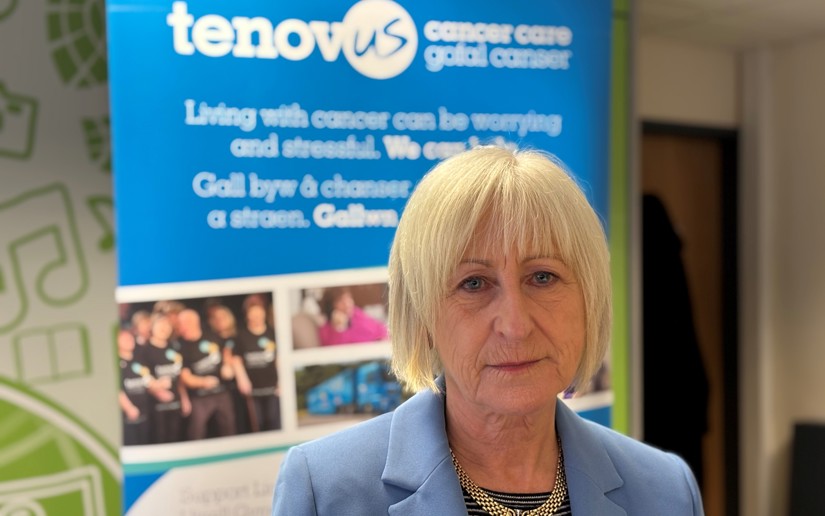In response to Audit Wales’ report on cancer services in Wales

We are deeply saddened and disappointed by the findings of this report, which paints a bleak picture of the governance arrangements in place to support the delivery of cancer services in Wales. Based on a thorough investigation of the facts, the report validates serious concerns we have had as a charity regarding oversight, leadership and lack of a cohesive strategy.
The challenges it highlights are not new. They reflect issues we have been raising for years. While we acknowledge the immense strain the Covid-19 pandemic placed on the NHS, this insight is part of a longer and troubling trend that cannot be ignored.
We are particularly concerned by the stubbornly long waiting times for certain groups of cancers including gynaecological. Despite previous warnings, the pace of progress has been unacceptably slow.
We contributed our insight to this report and appreciate that some of our longstanding concerns - data, waiting times, and issues around certain cancers such as lung - are reflected in its findings. But identifying the problems is only the first step. The Welsh Government must now respond by outlining the actions it will take to establish robust governance and oversight, ensuring our arrangements are fit for purpose into the future.
This report must serve as a wakeup call. We cannot afford defensiveness or delays. The consequences are stark: people are dying because the system is not equipped to meet the challenges we face. By 2030, its estimated 230,000 people will be living with cancer in Wales. These issues will only worsen if we fail to act now.
There are solutions. We in the third sector stand ready to work collaboratively with the NHS and Welsh Government to implement them.
- Scrutiny and accountability: This report should be reviewed by the Public Accounts and Public Administration Committee to ensure robust scrutiny and accountability. We are lending our voice to support this call from the Wales Cancer Alliance, a coalition of over 30 cancer charities, and will be writing to the Chair of the Committee, Mark Isherwood MS.
- Longer-term strategy: The three-page Quality Statement for Cancer published in 2021, and three-year Cancer Improvement Plan have failed to deliver what is needed. We urgently need a longer-term strategy. The World Health Organisation recommends that every country has a cancer strategy. Evidence from Cancer Research UK, through the International Benchmarking Programme, also demonstrates that countries with comprehensive cancer strategies realise better outcomes for their populations. Wales will be the only UK nation without, since England has reversed its decision to scrap a strategy.
- Lung cancer screening: The immediate rollout of the lung cancer screening programme is essential. Not only to save lives but also to position Wales as a global leader in this area by being one of the first countries to deliver an all-nation programme for its citizens.
- Improved data analysis: The lack of data hampers our ability to forecast, identify inequalities, and respond effectively. Investment in data input, analysis and reporting is critical.
- Collaboration: The third sector brings expertise, resources, and the voices of people affected by cancer to the table. More consistent engagement and involvement is key to creating solutions that work.
We need a system that prioritises pragmatism and cooperation over political and administrative ping pong. Tackling cancer requires long-term commitment and clear lines of accountability. Lessons from the Covid-19 response demonstrate the value of joined-up thinking, concerted collaboration and decisive action. For instance, while England has made significant progress on lung cancer screening, we have a unique opportunity to trailblaze in Wales by implementing a once-for-Wales, national programme.
The Welsh Government must resist the temptation to selectively use data that paints a more favourable picture. Performance decline cannot be explained away. It must be addressed head-on with better medium to long-term planning. People are being failed, and every delay costs lives.
We remain committed to working with all partners to bring about meaningful change. This report is a stark reminder that we cannot afford to wait. Together, we can and must do better.



